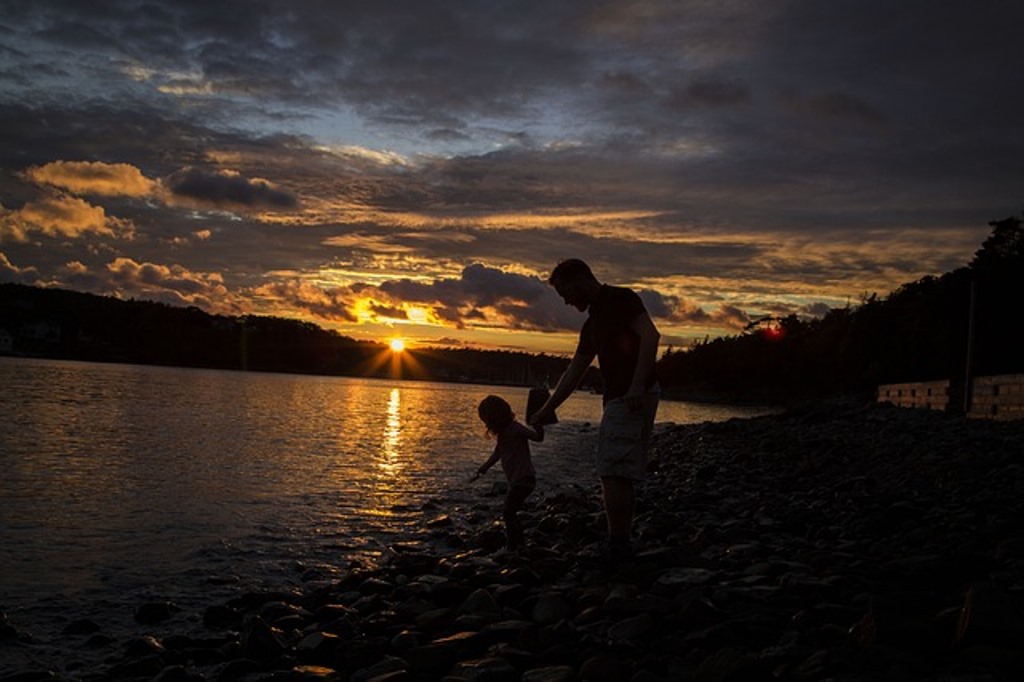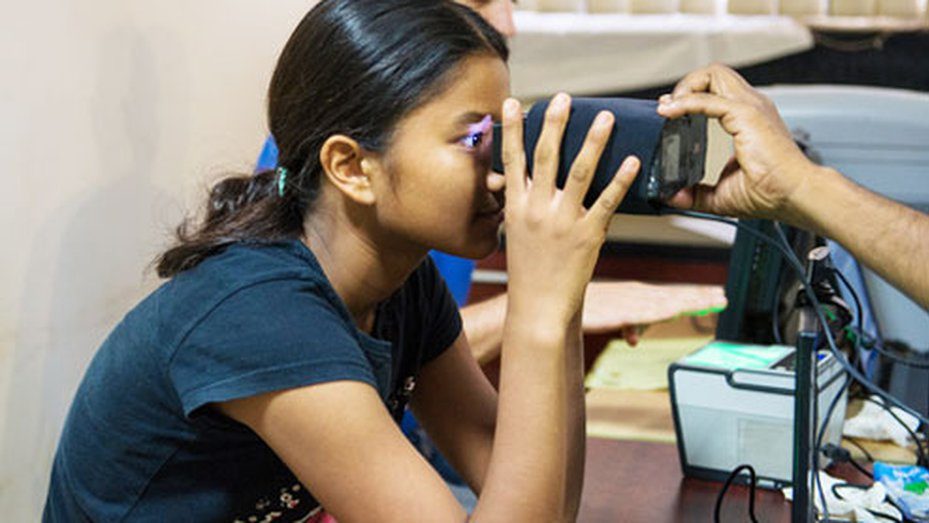For the longest while I have deliberated on what makes a teacher out of an individual. Is it training? is it deep thinking, knowledge or meditation? Is it about scholarship? Is it about interpersonal skills? A desire to give back? What is the epistemology and ontology of teachers? Are we individuals who through some interventions become teachers or are we teachers who through some chance accident find ourselves in the profession of teaching?
I am a university teacher and sometimes you have university teachers (like me) who are still carving themselves through asking these questions. Trying to gauge their role in the lives of younger scholars who they interact with. Understanding who they are, what purpose they serve and what made them the teacher they are today? When they are asking these questions it is not to build a glorified narrative of how great a teacher they are owing to their superior learning, affiliations and experiences but rather to dig into themselves and their past to find the roots of their practice, to find the epistemologies and ontologies of a teacher they are today.
I was five when my mother draped me in her yellow saree for a nursery school function where I was to play a teacher in a class play. I had the vivid feeling of looking beautiful for the first time in my life. I was wearing the saree that was as unique as my mother (I never saw a second piece of that yellow saree, ever). It was a small part where I tell a group of children a story, which was the primary play. I stood for my initial 5 minutes on the stage dressed in my mother’s saree singing a rhyme with my ‘class’ and looking at my teacher from the stage. After the play was over I was invited into the staff room with my mum to sit with the teachers because as my class-teacher put it, that day ‘I was a teacher too!’. I remember my chest puffed up at the thought of being considered a teacher. In the most rudimentary meditations of a 5 year old, being a teacher was all about knowing the rhymes/all that there is to know, having access to all the toys, being loved by everyone and of course, wearing the yellow saree.
Through schooling, teachers became people who made rules, reprimanded when the rules were broken and taught us stuff and then asked us questions to check retention, gave us grades, appreciated/saw only those who scored better or were remarkable in some sense (positive and negative). The years of being around many such teachers taught me teachers were strict and distant people who knew a lot about their subject. They were patronising and judgemental. In high school, me and my closest friends (much like many children) wondered if these teachers were this uptight even in their personal lives, this judgemental with their own children. Perhaps teachers appeared to the high-school me as people having dual persona and an elaborate Goffmanian presentations of the self. This culminated in my final years at school when I had a run in with the worst teacher, I have known in my life so far. This was a person who was intensely judgemental, harshly reprimanding, hierarchizing students on the basis of their perceived ability and performance in his subject and made life predictions on the basis of his short vision of growing adults. He signed me off as a lost-cause, someone with no promise or weight, he memorably told my parents, “Forget about college! You should be celebrating if she even manages to clear her Boards Exams”.
He spoke of me as someone whose fate was sealed as a below-average individual with no scholarly capacity in the meritocratic system. He never had a good word to say to/or about me. On one occasion when he saw an oil painting I had made for a school art project and admired it openly in class without knowing it was mine. He asked who had made it and my friend excitedly told him that it was mine, at which point his expressions changed and he muttered, “Acha hai, kuch to aata hai…” (Well, at least you know something!). I felt slighted and looked at myself as incapable of being thought of positively. I was acutely aware how teachers were taken as final authority on the capabilities and potential of individuals who are yet to formulate a rudimentary sense of themselves. Individuals who are still trying to make sense of themselves being told in very absolute terms what and what not they’re capable of by people who claim authority and are recognised by everyone around them as significant. The only way, then, that I could make sense of myself against his well subscribed to opinion, was in the form of revolt.
I hated his subject and I hated him. I wanted to hurt him with sharp comebacks to his sarcastic comments about me which I would play and replay in my head as a measure to preserve my corroding sense of self. I graduated school with deep repulsion for the idea of teachers. Memories of my sweet nursery teacher Mrs. Dean who would bend down to our level to talk to us, who would ease every discomfort by speaking to us in mellow tones and repeatedly told us it will be alright, were lost to the deep anguish and hurt of a vulnerable adolescent. Even if it came back to me sometimes, I was overpowered by the thought that Mrs. Dean taught me when I was in nursery. I was too young to be read into and she didn’t know anything about me as a person, the way that my 11th standard chemistry teacher knew. After all, he was assessing me on real knowledge and learning not on basic skills. Besides he was teaching a subject at plus two level not in nursery. In the hierarchy of knowledges he was superior to her and so was perhaps his opinion. Mrs. Dean sunk into my person and memory as primitive.
While trying to figure out what to do after school I came across a four year integrated teacher education course run by Delhi University, which my father brought the prospectus for in line with my Chemistry teacher’s predictions that my parents should have low hopes and aims for this child of theirs. The prospectus seem to suggest that teaching as a profession was my father’s idea of a humble aim for an academically low-achieving child. Accepting this and applying for the programme would mean I have accepted the Chemistry teacher’s idea of myself. I had accepted that I should aim low. I hated the assumption as much as I hated the teacher who had inspired it. Other than the fact that applying for the programme would mean accepting defeat to the perception of me built by the chemistry teacher, there was another reason I did not want to become a teacher. I had cultivated a deep-seated hatred for my Chemistry teacher and in extension for the teaching profession (and for Chemistry). I reluctantly filled the form (for the other option I had was engineering which would mean a whole lot of teachers like Chemistry teacher). I cleared the entrance which courtesy my negative sense of self, now made me value it less. I reluctantly dragged my feet to the orientation where one of my college teachers asked the group of young women sitting together to describe ourselves in five words. I was sweating already, dreading having to speak. My turn came and I could only list two words. I was suddenly very aware of how much damage this one teacher had done in two years. The meditations that this teacher inspired on day one of college led me into the direction of teacher education.
During my four years at college, I came across different types of teacher influences but also there was a lot of impact of the training. When I now look back, I realised that the curriculum of the course was extremely radical. It was put together with a clear intention of training critical analytical teachers, the problem there was that the responsibility of carrying the spirit of the course was rested on shoulders of teachers who were not quiet attuned to this task. The teachers were teaching us to be radical and questioning our biases while the 20 women who were part of the class could see through the biases of some of the teachers. This caused what we were taught, Piaget would call ‘cognitive crisis’ in learning, a disequilibrium between existing knowledge and new knowledge. The taught was in conflict with the teachers. The knowledge in conflict with the ‘facilitators’. The course shaped our perspective and the first objects of our recently acquired sharp critical analysis were our own teachers. Needless to point out, the teachers weren’t prepared to be evaluated and did not fare well on the evaluation, for most part. Disenchantment with teaching and our teachers was rampant among my peers towards the fag end of the course. Most of my classmates decided not to teach in revolt of the perceived ‘hypocrisy’.
My experience was mixed. I was asked to get out of the class for asking a question and debating with the teacher in my first year, told I lacked focus or determination; at the same time I also had teachers who sat down on stairs outside the class when I broke down, to hear me out and help me. Most notable though was my interaction with a teacher who in every possible sense of the word, changed the course of my life. Dr. K was the first person to identify some potential in me. She told me I had ‘research acumen’. She worked with me on projects and talked about my work positively with other teachers too. She told me I should seriously consider going into academic research. This was the first time I came across the idea of research and also the first time I was associated with something academic and ambitious. She nudged me to dream bigger, to have an aim. She was the primary motivation as to why I began thinking of studying further. I applied for a degree in Sociology, knowing well that teacher education stands on the fringe of acceptable prerequisites for advanced degree in Sociology, because the discipline considered Teacher Education as weak disciplinary education.
I was surprised Jawaharlal Nehru University didn’t agree with that popular notion and granted three from a class of 20 trained elementary teachers admission to the masters degree. I was under the widest sky I had so far experienced, both figuratively and literally. While, many teachers were rather non-descript, in my second year I met one of the most remarkable teachers. A radical teacher, Prof. A transformed his classroom into a space where everyone spoke, not just him, where everyone debated as equals. This was a teacher who readily accepted that he needed to think before he responds to something that a student had said if it had triggered him to re-evaluate his thinking. A scholarly humility previously unknown to my sensibility. On one occasion Prof A. spotted me entering the class late and after the class mentioned that he had seen me enjoying the rain, sitting outside the class and singing and did so not as a way of pointing out a mistake but rather as an acknowledgement or my personhood. A personhood that existed beyond the bound of lecture hall. He acknowledged me as a scholar, a thinker and not just as a limited student. Prof. A introduced a very beautiful analytical tool for metacognitive reflections, he suggested that we all have our thinking horizons and our respective horizons interact with the horizons of others to broaden ours. I remember thinking long and hard along the idea for many many days. Even recently, when I approached him a bit disillusioned about my role as a university teacher, after congratulating me on becoming a mother, he suggested I should let the epistemologies of motherhood shape my practice as a teacher. Something I am still meditating about. The other lasting impact upon me was of Prof. A. speaking to his entire class right before an exam we were supposed to write for his course. He told his students that the marks they score on this examination cannot capture the learning they have acquired or the learning this initial engagement will inspire beyond our years in this university. Learning was being talked about as a larger pursuit than just getting a good grade and a degree.
I began my research degree with my supervisor after this. Prof. S went against the popular opinion writing me off as ‘all over the place’ candidate and took me as his student. This time I was closely interacting with a teacher who considered his students as his peers, in true sense. I remember shortly after I was added to his cohort Prof. S. wrote a piece for a newspaper which he shared with the cohort and I most enthusiastically critiqued his position with the least restraint. His response was that that he congratulated me on the arguments I had written and invited me to frame them better and shape them as an article. There were many occasions during my 8 years of association with him when I would oppose his views and debate passionately everything he said, differed from his position vocally and not on one occasion I felt slighted or not considered. My most vivid memory of my interactions with him have been ones where we ferociously debated something we couldn’t come to agree upon neither giving in, he was tiring in having to explain something to me and out of fatigue suggested maybe I should take someone else’s opinion on the matter, to which I replied without flinching, “I do not want someone else to explain it to me, I want to discuss this with you!”. There were many occasions when heated arguments between us were settled and immediately followed by his suggestion, “Chai peena hai?!” (you want some tea). To be treated as an equal, to be valued in scholarly debates acquired new meaning. I can recall many more teachers but I think I have made my point here.
The reason why I am invoking all my notable experiences with these teachers is because in my reflections I realised these incidents/experiences have shaped the epistemologies of the teacher, I have become. I have carried forward the practices that made my life as a student meaningful, my pursuit of education worthy and broadened my horizon. Yes, my training in scholarly thinking, my training in teacher education has trained my sensibility but my pedagogy isn’t one that can be referenced in texts rather in my experiences with these and many other teachers who have effortlessly shaped me as a teacher. I, as a teacher can be referenced in the teachers I have had, the ideas that they made come live, the meditations they inspired and the ways in which they shaped my thinking, with a lot more than their words and lectures. This is not to say immediate context, our support systems, the expectations of students, institutional constraints and requirements and socio-political environment does not shape our practice as teachers, instead this is to say, even when these influences exert pressure to shape my duty as a teacher, the passion that makes me want to enliven my class with meditations and discussions is shaped by a long line of brilliant and inspiring teachers and learning experiences. I could have been a brilliant scholar despite the worst of teachers, I could have attained brilliant academic record through reading on my own and sharpening my arguments through watching online lectures and attending online classes. I could have seen my role as imparting information and grading students and limiting all classroom discussions to being strictly about subject matter, making sure students retained everything there was to know and nothing that needed to be learnt but I couldn’t have been a teacher without having experienced education. We are neither inherently good teachers who by some accident ended in the profession of teaching nor individuals who through some unique intervention become good teachers. We are learners who learnt all there was to learn from teachers who valued learning. We are teachers who are rooted in epistemologies of great teachers. I know this, because one of my students recently wrote to me that I and other teachers like me made her the kind of person she’s become but it also made her too hopeful as individuals. She said we made her look for inherent genuineness in people, to not dehumanise even those who dehumanise and humiliate us and it sometimes becomes a heavy burden and I instantly knew the feeling she was having was the feeling I had when I began teaching. I knew the next link in this beautiful human chain was standing next to me and I am holding her hand. I responded to her and told her there are many kinds of burdens people carry through their lives, which kind of burden would she rather have weigh on her life? If one were to change the epistemologies of who we are, what would we become?
Smriti Singh teaches Sociology at the Department of Social Sciences and Humanities at the Indraprastha Institute of Information Technology Delhi.










